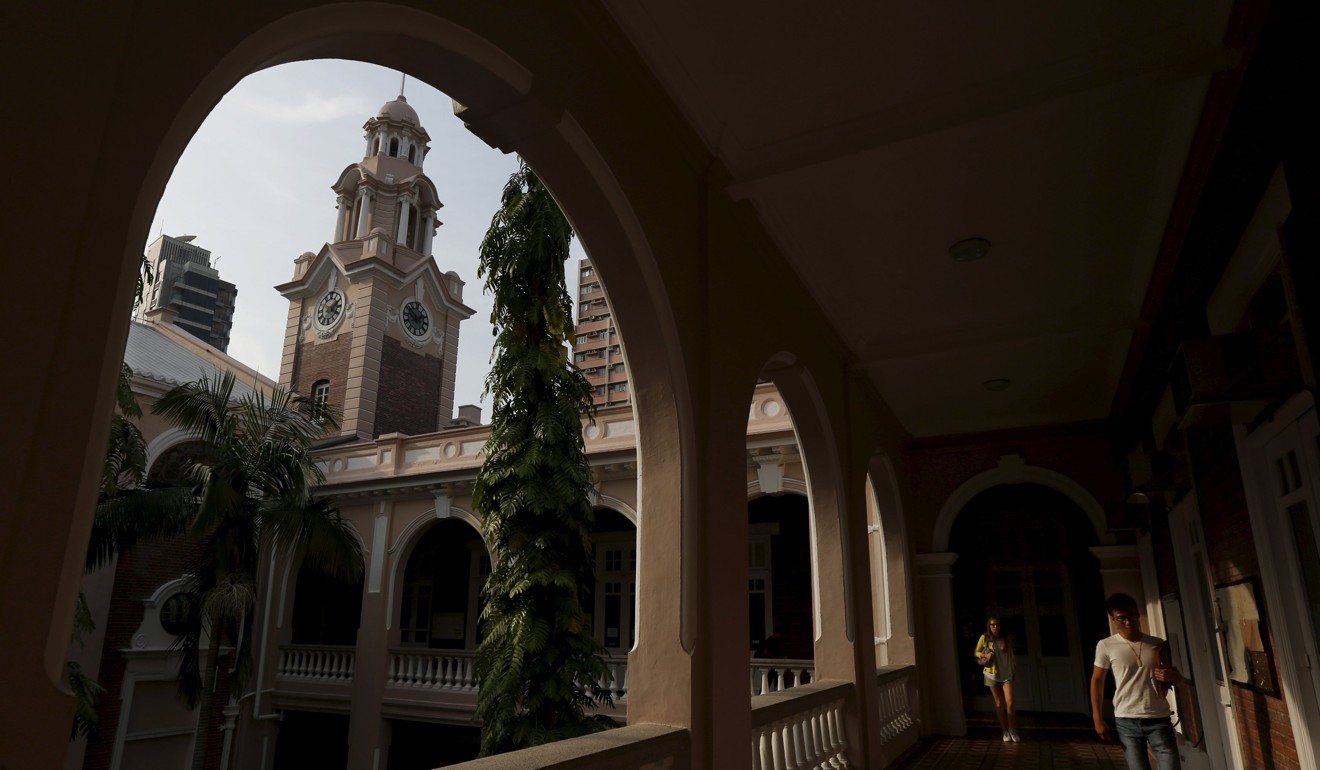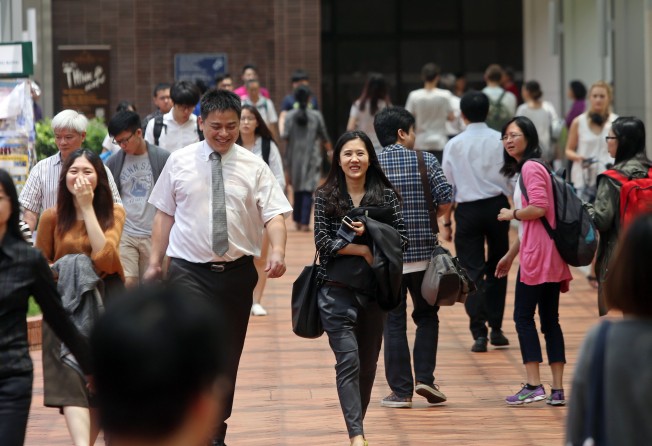
Hong Kong universities get high rankings in law and education despite political controversies
Times Higher Education assessed four subjects taught around the world this academic year

Universities in Hong Kong were recognised as top schools of law and education in Asia according to a global survey, despite ongoing controversies involving the city’s rule of law and freedom of expression.
The rankings announced by the Times Higher Education on Wednesday assessed four subjects taught at universities around the world in 2017/18.
Law and education debuted as categories in the global annual survey, while social sciences expanded to cover 200 institutions and business and economics added 400.

In the findings, the University of Hong Kong placed fourth in education, making it the only Asian institution to land in the top five in any category. It followed Stanford, Harvard and Oxford.
Phil Baty, the rankings’ editorial director, said HKU’s success was “largely due to its very high score for research”. The Chinese University of Hong Kong came 20th.
In law, HKU was the lone Asian institution to crack the top 20, at 18th.
Mainland universities only made the cut in business and economics. Peking University moved up one place from last year to 17th. Hong Kong University of Science and Technology took 14th – the only local university in the top 20 in the category.
But both mainland and local universities failed to break the dominance of their counterparts in the US and UK in social sciences.
More than 10,500 academics were asked to name no more than 15 universities that they believed were the best for teaching and research in their disciplines. This survey was carried out from January to March this year.
Baty believed that being ranked in the top 100 qualified as “a great achievement”.
The international recognition accorded HKU’s law programme stood in marked contrast with its controversial role in heated disputes relating to judicial independence and local politics.
It also came as calls continue for HKU associate professor of law Benny Tai Yiu-ting to resign. Tai, a co-founder of the pro-democracy Occupy Central movement of 2014, is facing a public nuisance charge stemming from the protests.
Tai’s colleague, Professor Johannes Chan Man-mun, who decades ago gave up his doctoral studies to help draft a human rights bill for Hong Kong, was accused of underperforming in his academic duties. Arthur Li Kwok-cheung, then a university council member, led the charge, and the governing body declined to appoint Chan as deputy vice-chancellor despite the nomination committee’s recommending him in 2015.
It was also in 2015 when HKU for the first time dropped out of the top 50 in the world universities ranking. Li, who later rose to chair the council, blamed some teachers for “not doing their jobs”.
Defending and contributing to the rule of law ... is a responsibility a law school cannot shirk
“Li was being unfair blaming teachers when the university’s ranking dropped,” University of Hong Kong principal lecturer of law Cheung Tat-ming said. “By the same token, I don’t think extraordinarily highly of the university just because it has a good ranking this time.”
Cheung believed serving the public was integral to a university gaining international recognition.
“Defending and contributing to the rule of law in the city where it operates is a responsibility a law school cannot shirk, more than just training lawyers who can make good money,” he said, adding that enabling social progress was another part of an institution’s mission.
Cheung also believed academic freedom and respecting differences were important values to uphold on campuses.
“University staff should not be punished for exercising their freedom to do academic research or express themselves even if their ideas might not be welcomed by mainstream society,” he said.
A spokeswoman for Chinese University said it would continue to stay committed to education for the benefit of Hong Kong, the mainland and the region.
HKU’s law faculty said in a statement it was encouraged and inspired by its achievement and would redouble its efforts to provide a first-rate legal education as well as champion the rule of law.
HKU interim dean of education Professor David Carless said the recognition was a testament to the institution’s hard work. The faculty would keep striving to enhance the impact of its scholarship, the quality of its students’ experience, and its local and international engagement, he added.